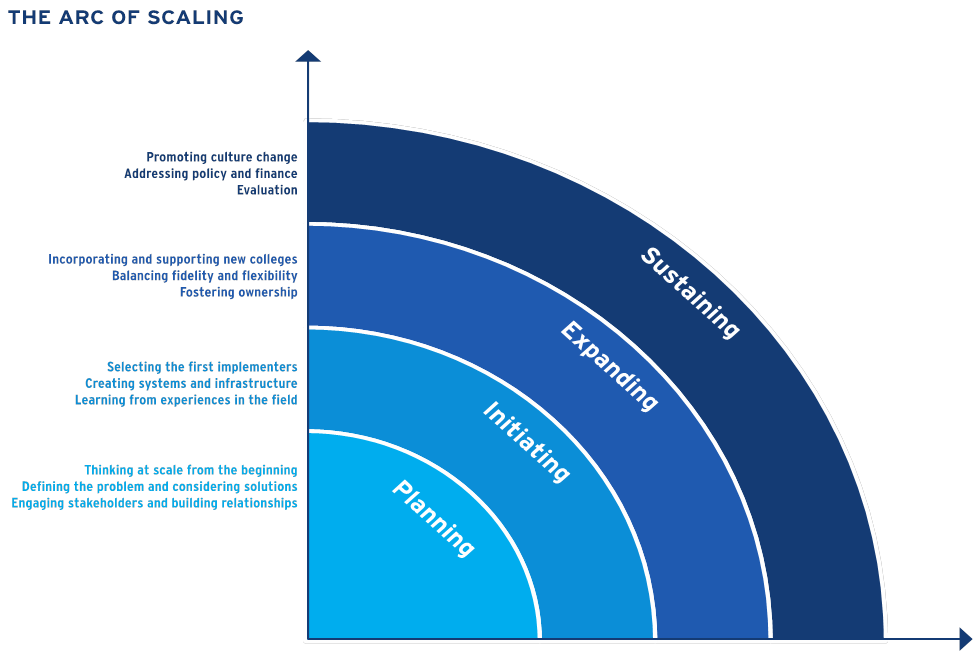Lisa Soricone of Jobs for the Future penned this guest blog after presenting a breakout session at the Scaling Up Pathways to Results 2014 conference.
How can we broaden the reach of promising approaches to impact larger numbers of community college students? Jobs for the Future (JFF) explored this question in Thinking Big: A Framework for States on Scaling Up Community College Innovation. Through interviews with leaders of states and colleges that had successfully scaled innovation, we derived a framework that captured common elements of their experiences.
The “Arc of Scaling” consists of 4 phases:
1) Preparation and Planning: defining the problem and considering solutions; engaging stakeholders and building relationships; and thinking at scale from the beginning
2) Initiating: selecting the first implementer; creating systems and infrastructure; learning from experiences in the field
3) Expanding: incorporating and supporting new colleges; balancing fidelity and flexibility; and fostering ownership
4) Sustaining: promoting culture change; addressing policy and finance; and evaluation
Image courtesy of Jobs for the Future
The Arc in Action
At OCCRL’s March 2014 Scaling Up conference, we presented our framework, and asked our colleague, Harmony Little, of the Kentucky Community and Technical College System (KCTCS), to comment on its applicability to Kentucky’s experience of scaling JFF’s Accelerating Opportunity (AO) initiative. Based on Washington’s I-BEST model, AO is aimed at helping low skilled students succeed in college and earn credentials that will lead to family–sustaining wages through career pathways that integrate basic skills and occupational training.
Harmony described how, in the preparation stage, the three state partner groups,— representing adult education, workforce, and KCTCS, —planned to align AO with other system efforts and partner missions, and sent a clear message of intention to scale AO statewide. At first, the initiative was rolled out with Phase I colleges, that later served as mentors for (the remaining) Phase II colleges. Colleges established leadership teams that mirrored the state- level collaboration. The state team set up structures for communication and feedback, and shared best practice and lessons learned among colleges. During expansion, Phase II colleges received technical support, professional development, and links to the national AO network. During this time, the state also focused on shared learning, identified champions and celebrated accomplishments. As of January 2014, Kentucky successfully scaled AO to all of its 16 colleges. The state team is working on sustaining the initiative by drawing on data and continuing to the work toward culture change and the institutionalization of processes.
Harmony noted how the Thinking Big report validated Kentucky’s experience, though she would encourage folks to think about culture change and evaluation throughout the scaling process, not just at the point of sustaining.
Lisa Soricone is a senior project manager at Jobs for the Future in Boston. Harmony Little is the Accelerating Opportunity project coordinator at the Kentucky Community and Technical College System.
